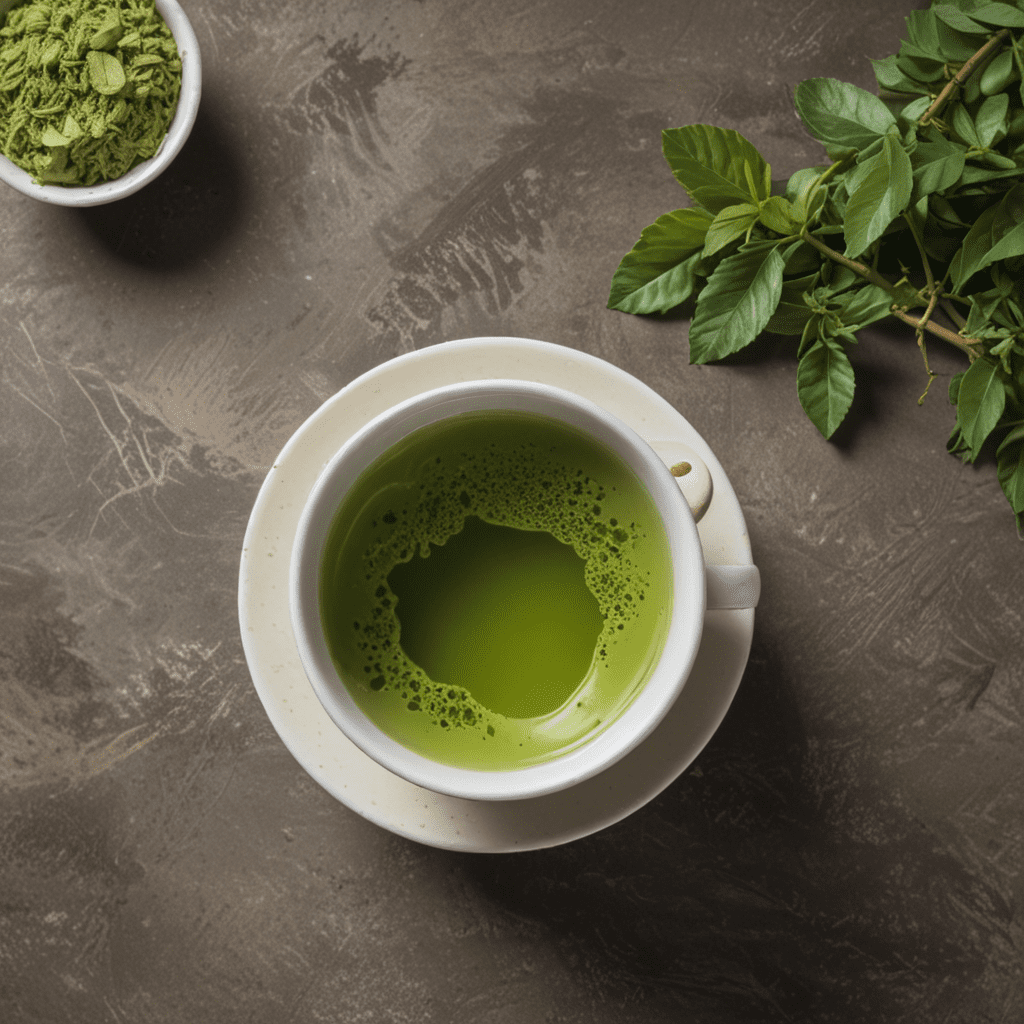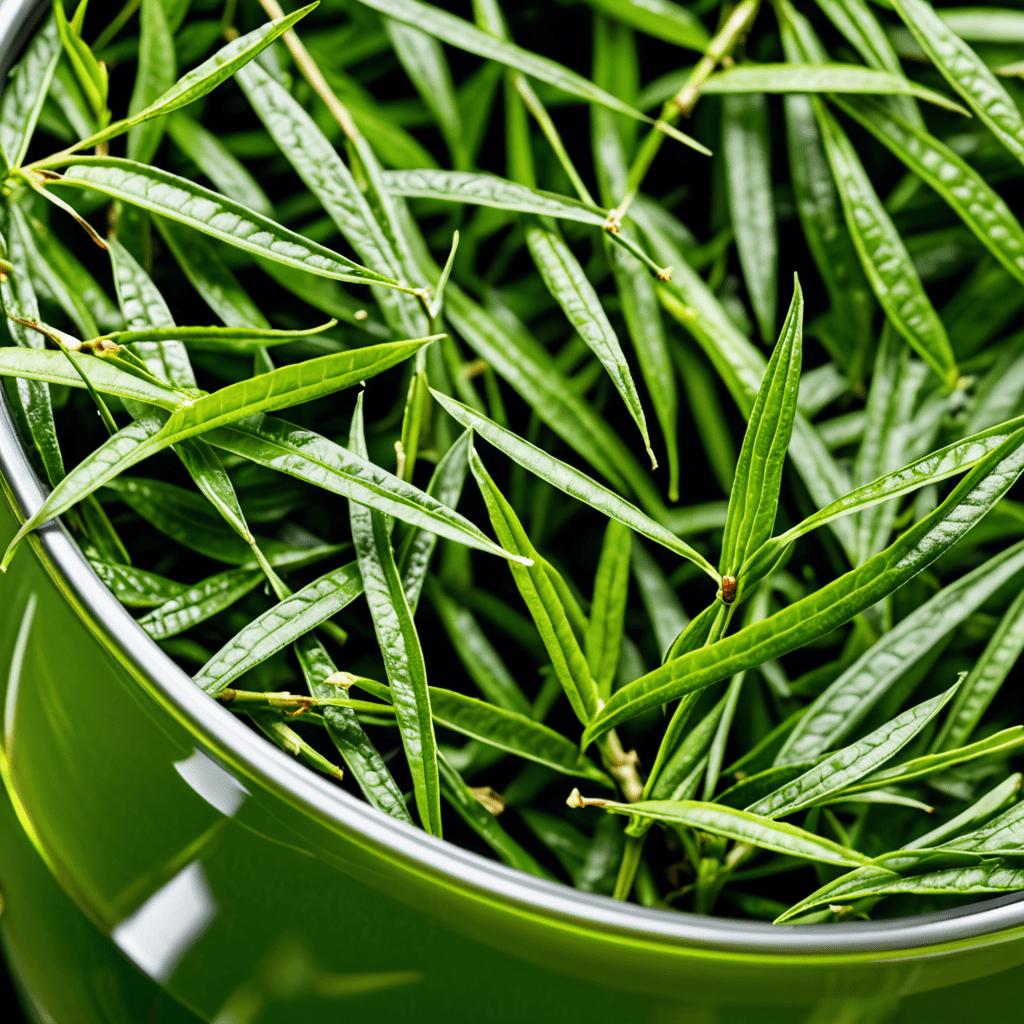
Introduction: Matcha and its Role in Brain Health
Matcha, a finely ground green tea powder, is meticulously cultivated and processed to preserve its vibrant green color and high nutrient content. It has been a staple in traditional Japanese tea ceremonies for centuries, revered for its exquisite taste and potential health benefits. Matcha is now gaining widespread popularity as a powerful addition to modern diets, particularly for its remarkable effects on brain health.
Components of Matcha: Key Nutrients for Cognitive Function
Matcha's exceptional health properties stem from its unique composition. It is an abundant source of antioxidants, including catechins, chlorophyll, and the amino acid L-theanine. These compounds synergistically contribute to matcha's impressive cognitive benefits.
Catechins and L-Theanine: Synergistic Effects on Brain Activity
Catechins, a group of polyphenols, are potent antioxidants with neuroprotective qualities. They help scavenge harmful free radicals that can damage brain cells and contribute to cognitive decline. L-theanine, an amino acid, interacts with catechins to moderate their effects and enhance their benefits. It promotes relaxation without drowsiness, fostering a state of calm alertness ideal for optimal brain function.
Enhancement of Cognitive Performance: Improved Focus and Memory
Studies have consistently demonstrated that matcha consumption can enhance cognitive performance. The combination of catechins and L-theanine improves attention, focus, and working memory. Regular matcha intake can also boost cognitive flexibility, the ability to switch between tasks and adapt to changing demands.
Neuroprotective Qualities: Reduction of Neuronal Damage
Matcha's neuroprotective qualities are attributed to its high levels of antioxidants. Catechins have been shown to protect brain cells from oxidative stress, a major factor in cognitive decline and neurodegenerative diseases. Matcha consumption may help reduce neuronal damage, preserving brain health and function as we age.
Protection against Age-Related Cognitive Decline
Matcha’s neuroprotective properties make it a valuable ally in preserving cognitive function as we age. The catechins in matcha have been shown to reduce inflammation and promote neurogenesis, the growth of new brain cells. Regular matcha consumption may help slow or even prevent age-related cognitive decline, maintaining a sharp mind and vibrant memory.
Matcha and Mood: Boosting Dopamine and Serotonin Levels
Beyond its cognitive benefits, matcha also exerts positive effects on mood. It contains L-theanine, an amino acid that promotes the release of dopamine and serotonin, neurotransmitters associated with pleasure, motivation, and a sense of well-being. Consuming matcha may help elevate mood, reduce stress, and enhance overall emotional health.
Stress Reduction: Calming Effects of L-Theanine
L-theanine, one of matcha’s key components, has a remarkable ability to reduce stress and anxiety without inducing drowsiness. Unlike caffeine, which can lead to jitters and agitation, L-theanine promotes a state of calm alertness. Regular matcha intake may help manage stress levels, improve sleep quality, and enhance emotional resilience.
Matcha’s Role in Alzheimer’s and Parkinson’s Disease
Ongoing research is exploring the potential role of matcha in preventing or slowing the progression of neurodegenerative diseases such as Alzheimer’s and Parkinson’s. Studies indicate that the catechins and L-theanine in matcha may protect against neuronal damage and inflammation, two key factors in these diseases. While more research is needed, matcha’s potential in this area is promising.
Practical Tips for Incorporating Matcha into Diet for Brain Health
Incorporating matcha into your diet is a simple and effective way to reap its brain-boosting benefits. The following tips can help you maximize your matcha intake:
Start your day with a matcha latte: Replace your regular morning coffee with a nourishing matcha latte. Add a scoop of matcha powder to hot milk or non-dairy milk and sweeten to taste.
Add matcha to smoothies: Blend a scoop of matcha powder into your favorite smoothie recipe for a nutrient-packed boost. The earthy flavor of matcha pairs well with fruits, vegetables, and other superfoods.
Bake with matcha: Experiment with adding matcha powder to your favorite baked goods, such as cookies, cakes, and muffins. The subtle green color and delicate flavor of matcha will enhance both the appearance and nutritional value of your treats.
Enjoy matcha tea: Brew a traditional cup of matcha tea by whisking a scoop of matcha powder with hot water. Savor the earthy, slightly sweet flavor of pure matcha.
Matcha supplements: If you find incorporating matcha into your diet challenging, consider taking matcha supplements. These capsules or tablets provide a convenient way to access the benefits of matcha on a daily basis.
FAQ:
How much matcha should I consume daily?
For optimal brain health, aim to consume 1-2 cups of matcha tea or take 400-800 mg of matcha supplements per day.Is it safe to drink matcha every day?
Yes, moderate consumption of matcha is generally considered safe for most people. However, if you have any underlying health conditions, it's always best to consult with your doctor before adding matcha to your diet.What is the difference between matcha and green tea?
Matcha is made from the entire green tea leaf, which is ground into a fine powder. Unlike traditional green tea, where the leaves are steeped in hot water, matcha is whisked into hot water, resulting in a more concentrated and nutrient-rich beverage.
- Where can I buy matcha?
Matcha can be found in most health food stores or online retailers. Look for high-quality matcha with a vibrant green color and a smooth, slightly sweet flavor.

